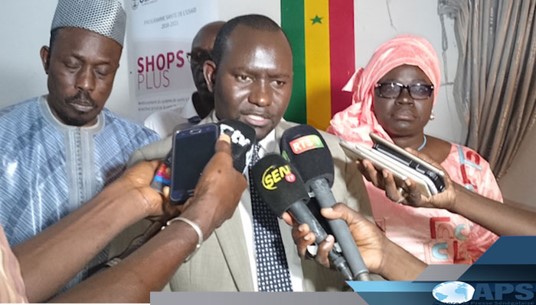Contracting private providers to participate in mutuelles

SHOPS Plus is piloting a model for public-private partnership designed to increase health coverage as Senegal moves toward universal access to health coverage.
The project worked with its Senegalese partners to co-design a pilot that launched in three of the country’s 44 départments. Using a learn-by-doing approach, the pilot is testing a new way to establish fair, consistent pricing for health care and increase access to quality care from private providers. The providers contract with mutuelles, community-led health insurance schemes, to provide services. The partners expect that their efforts toward greater collaboration between mutuelles and private providers will contribute to greater financial risk protection of covered citizens and support access to universal health coverage.
The idea for the pilot stemmed from research conducted in 2017 when SHOPS Plus, working closely with Health Systems Strengthening Plus, another USAID program, explored how private providers could help expand population coverage in mutuelles, and mitigate persistent bottlenecks in service delivery. The team’s research uncovered opportunities to increase collaboration between public and private actors. Specifically, the team looked at increasing participation by private providers in the provider networks of mutuelles as a way to increase access to services and reduce financial barriers. The project facilitated an innovative public-private partnership between Senegal’s agency for universal health coverage (ACMU) and the country’s national association of private health providers (ASPS).
Mutuelles, a key component to universal health coverage
In 2013, Senegal launched a national program to achieve universal access to health coverage. A key component of the program is to scale up community-led health insurance schemes called mutuelles, which pool contributions paid by members, and subsidies paid by the government to finance health care. Mutuelles are a financing mechanism that reduce out-of-pocket spending for those who need care. Population coverage in mutuelles in Senegal reached 19% in 2018, and the country has the ambitious aim to increase coverage to 45% by 2021. Importantly, coverage has become more equitable, thanks to government subsidies targeting poor and vulnerable groups.
Yet enrollment in mutuelles is stagnant. Most mutuelles remain small and financially frail; they struggle to build and maintain sufficient enrollment to achieve and sustain financial viability. Approximately 80% of Senegalese remain uninsured, facing financial hardship to access care: in 2013, 55% of health care spending was paid for out-of-pocket by people seeking care. At the same time, Senegal’s public health system lacks sufficient human and financial resources. Private providers deliver substantial amounts of care (for example based on the 2016 Senegal DHS 18% of caregivers seek sick child care treatment or advice from private sector providers), yet mutuelles rarely purchase services from them.
The public-private engagement through mutuelles is promising. SHOPS Plus is documenting lessons learned from this activity to inform the next stage in strategies to achieve universal health coverage. The strategies aim to increase access to services with less financial hardship through greater participation by private providers in mutuelles nationwide. The global health community, especially countries at a nascent stage of universal health coverage and attempting to scale up social health insurance, can benefit from emerging lessons learned from Senegal’s experience.
Learn more about our work in Senegal.